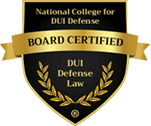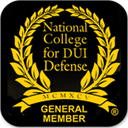Atlanta Criminal Defense Lawyers
Experienced trial lawyers who protect you and get results
If you’ve been arrested for driving under the influence, a sex crime, drug crime, or any other Georgia felony or misdemeanor, you need a lawyer who knows his way around the courthouse and is intimately familiar with local courtroom procedures. Likewise, if you’ve been injured in an accident, the only way you’ll get top dollar for your claim is if the insurance company knows your lawyer is prepared to go to trial and win a substantial jury verdict.
At Hawkins Spizman, we are trial lawyers serving injury victims and the criminally accused throughout the state of Georgia. We settle and resolve cases every day outside of court, often without having to file a lawsuit or go to trial. But we never back down from a fight, and we never sell you short. If it’s in your best interests to avoid a trial and resolve your matter some other way, rest assured our team has the skills and determination to get you an outstanding result. On the other hand, if a trial is necessary to get the best outcome, you’ve found the Atlanta criminal defense lawyers with the experience and resources to get the job done.
You don’t always need a trial lawyer, but when you do, you’ll be glad you have Hawkins Spizman working for you.
DUI Defense
Driving Under the Influence (DUI) is a misdemeanor offense in most instances. Yet the penalties and consequences of a drunk driving conviction go far beyond just having to pay a fine, as is the case with most misdemeanor crimes. You can lose your driver’s license, you can lose your job, and you can lose your professional license as well. A DUI can turn your life upside down from four months to five years, depending on your driving record.
It doesn’t have to be that way. There are many ways the police can get it wrong when they pull you over, arrest you, or test you for intoxication. With Hawkins Spizman as your trial team, you’ll have access to a nationally Board Certified DUI expert who can evaluate the facts, identify weaknesses in the prosecution’s case, and help you keep your driver’s license, stay out of jail, and avoid the worst consequences that often follow a DUI arrest for someone without superior legal representation.
Criminal Defense
Hawkins Spizman handles the full range of Atlanta misdemeanor and felony offenses, from traffic tickets and property damage to sexual assault and manslaughter. As a person accused of a crime, you have constitutional rights to ensure you are treated fairly, including the right to remain silent and have an attorney represent you. When you exercise these rights that are guaranteed to you, you put yourself in the best position for a positive outcome. There is no reason to put yourself at the mercy of the prosecutor and judge when you could have an experienced criminal law attorney on your side who is knowledgeable, skilled and dedicated to getting you the best result.
Our Atlanta criminal lawyers have amassed a long string of cases where we achieved outstanding results for our clients, whether that outcome was getting charges dismissed, securing a not guilty verdict at trial, or negotiating favorable terms that allowed our clients to move forward with a productive and successful life and put the charges behind them. It all begins with a call to Hawkins Spizman, where we offer a free case review to let you know your options and how we can best help resolve the problem you are facing.
Personal Injury Representation
When you’ve been injured because of another’s negligence or misconduct, Georgia law allows you to recover compensation for your medical bills, lost income, and pain and suffering from the negligent party. Unfortunately, the burden falls on you to prove the other party’s negligence and liability to you, and the insurance companies on the hook to pay a settlement or judgment sometimes fight tooth and nail to avoid paying what they should. They deny their insured was negligent and say your injuries were caused by some other accident, or they’ll even dispute that you are hurt as bad as they say you are. They are also likely to accuse you of being the negligent one or at least partially at fault. This trick reduces the amount they have to pay and can even get them out of paying altogether. You need a lawyer on your side who knows all the insurance company tricks and has the skills and experience to hold them accountable.
At Hawkins Spizman, we have represented victims of car, truck and motorcycle accidents on Georgia roads from low-speed fender benders to high-speed crashes causing serious injuries. We put every case on a litigation footing to secure the best settlement or go to trial when needed. Call our office for a free case evaluation after an Atlanta motor vehicle accident, slip and fall premises liability accident, medical malpractice, nursing home abuse, or other personal injury. We take cases on a contingency fee basis and advance all costs. We only charge a fee after we are successful in recovering compensation for you, so it costs you nothing upfront to afford high-quality legal representation for your Atlanta personal injury claim.
Experience Matters. Call Hawkins Spizman Trial Lawyers for Dedicated Legal Help With Your Atlanta DUI, Criminal Defense, or Personal Injury Claim
If you’ve been arrested for DUI or another criminal offense in Georgia, or if you’re hurt because of another’s negligence or wrongful conduct, call Hawkins Spizman at 770-685-6400 for a free consultation. We’ll review your case at no charge and give you an evaluation of where we think you stand and how we can help you. Call us anytime you need us, day or night, any day of the week. A live person will answer your call, and we’ll get in touch so your case is not delayed and your rights remain protected. We have several full-time staff members fluent in Spanish and are ready to serve you if Spanish is your preferred language. Waiting to talk to a Atlanta criminal defense attorney can be disastrous to your case, so call Hawkins Spizman now for immediate assistance.
























